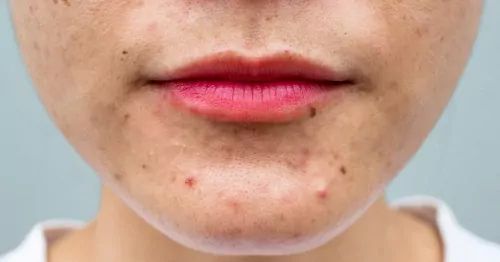
Acne is a common skin condition that affects millions of people worldwide. It can be frustrating and even embarrassing, and can often have a negative impact on a person's self-esteem. In this blog post, we will explore the causes of acne, as well as some treatment options that can help alleviate the symptoms.
What is Acne?
Acne is a skin condition that occurs when hair follicles become clogged with oil and dead skin cells. This can lead to the formation of pimples, blackheads, and whiteheads. Acne typically appears on the face, neck, chest, and back.
Causes of Acne
Acne can be caused by a variety of factors, including:
-
Hormonal changes: Hormonal changes during puberty, menstruation, and pregnancy can cause an increase in oil production, which can lead to the development of acne.
-
Genetics: Acne can be hereditary, meaning it can be passed down from parents to their children.
-
Diet: Some studies have shown that a diet high in sugar and processed foods can contribute to the development of acne.
-
Stress: Stress can cause an increase in cortisol levels, which can lead to an increase in oil production.
Treatment Options for Acne
There are several treatment options available for those who suffer from acne. These include:
-
Topical treatments: Topical treatments, such as benzoyl peroxide, salicylic acid, and retinoids, can help reduce the appearance of acne by unclogging pores and reducing inflammation.
-
Oral medications: In some cases, oral medications, such as antibiotics or hormonal treatments, may be prescribed by a dermatologist to help reduce the severity of acne.
-
Lifestyle changes: Making changes to your diet and reducing stress levels can also help improve the appearance of acne.
-
Professional treatments: For severe cases of acne, professional treatments, such as chemical peels or laser therapy, may be recommended by a dermatologist.
Prevention of Acne
While there is no surefire way to prevent acne, there are several things you can do to reduce your risk of developing it. These include:
-
Keeping your skin clean: Wash your face twice daily with a gentle cleanser to help remove excess oil and dirt.
-
Avoiding harsh products: Avoid using harsh skincare products that can irritate your skin.
-
Using non-comedogenic products: Use skincare and makeup products that are labeled as non-comedogenic, meaning they will not clog pores.
-
Avoiding touching your face: Touching your face can transfer bacteria and oil to your skin, which can lead to the development of acne.
Avoiding harsh skincare products is an important step in preventing and treating acne. Harsh products can strip the skin of its natural oils, causing it to produce more oil to compensate, which can lead to clogged pores and breakouts. Here are some tips for avoiding harsh products:
-
Read product labels: Look for products that are labeled as gentle, non-comedogenic, and formulated for acne-prone skin.
-
Avoid alcohol-based products: Products that contain high levels of alcohol can be drying and irritating to the skin.
-
Avoid abrasive scrubs: Avoid using scrubs or exfoliators that contain harsh ingredients like ground nut shells or sugar, which can cause micro-tears in the skin and lead to inflammation.
-
Be cautious with acids: While alpha-hydroxy acids (AHAs) and beta-hydroxy acids (BHAs) can be effective for exfoliating and treating acne, they can also be harsh and cause irritation. Start with a low concentration and gradually increase over time.
-
Use gentle cleansers: Look for a gentle, non-foaming cleanser that won't strip the skin of its natural oils.
-
Patch test: Always patch test a new product on a small area of your skin before using it all over your face to avoid any potential allergic reactions or irritation.
By avoiding harsh products and opting for gentle, non-comedogenic options, you can help keep your skin healthy and prevent the development of acne. If you are unsure about which products to use, it is always best to consult with a dermatologist who can recommend products tailored to your individual skin type and concerns.
In conclusion, acne is a common skin condition that can be frustrating and difficult to manage. However, with the right treatment options and preventative measures, it is possible to reduce the severity of acne and improve the appearance of your skin. If you are struggling with acne, it is important to speak with a dermatologist to determine the best course of treatment for your individual needs.








